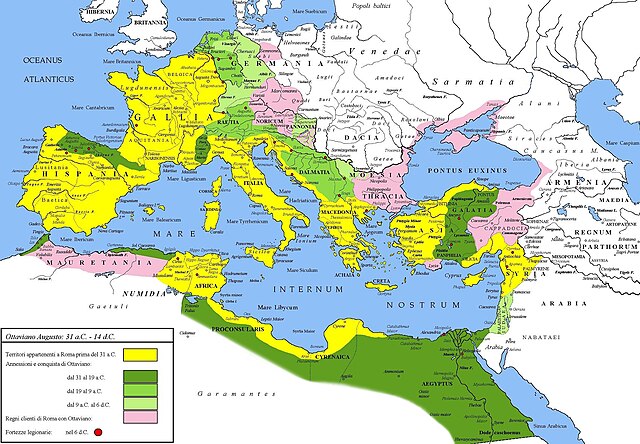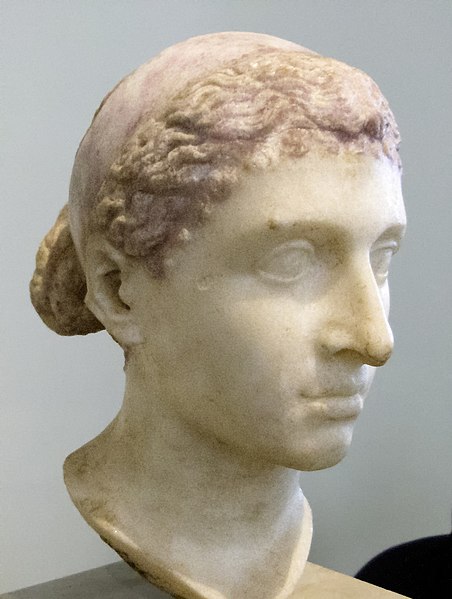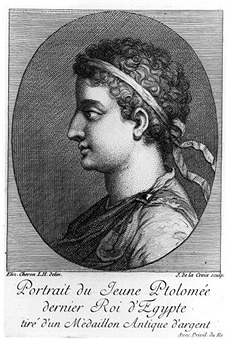The Burning of The Library of Alexandria28 January 2022
Probably not as bad as Bradbury imagined


"The Great Library of Alexandria" by O. Von Corven | Public Domain, image taken from WikiCommons
The Library of Alexandria was an important place of scholarship for the
Mediterranean area, the site of the emerging Roman Empire. The library is known as a kind
of a great collection of 'all of the knowledge of the Western world.'
 The Roman Empire under Augustus, by Cristiano64 | BY-SA 3.0
The Roman Empire under Augustus, by Cristiano64 | BY-SA 3.0
At this point in time, around year 40, the Roman Republic was developing into the Roman Empire, and Julius Caesar was trying to take over control of the Roman government. Caesar was trying to kill his opponent to power, Pompey, in Macedonia, who fled away to Egypt. Egypt, at the time, was ruled by the Ptolemic dynasty. The pharoah was Ptolemy XIII, who ruled together with his sister Cleopatra VII.
The siblings were having a feud, and Ptolemy stripped his sister of many
royal priviledges. Wanting to take over control, Cleopatra asked the assistance of Caesar,
who was eager to have even more leverage over a client state, to take over the throne. This
started what is known as the Siege of Alexandria.



Ptolemy's palace was located quite close to the Library. When Caesar and
Cleopatra arrived at the palace, Ptolemy had already fled the city. The Egyptian army
forced the two of them to barricade themselves inside, awating help from Caesar's army.
When they arrived at the Great Habour, they shot fire arrows into the city, causing
detrimental damages to the entire city, including the Library.
 Plan of Alexandria c. 30 BC, by Philg88 | BY-SA 3.0
Plan of Alexandria c. 30 BC, by Philg88 | BY-SA 3.0
"Kerosene!"
They pumped the cold fluid from the numbered 451 tanks strapped to their
shoulders. They coated each book, they pumped rooms full of it.
This is a quote from near the beginning of the book, where Montag and the
gang were burning the lady's house full of books. This simply, generally, represents the
whole theme of F451: bookburning. To a young Bradbury, who would have been very
enthusiastic about books, hearing a very dramaticized version of the story of the Burning,
it would have seemed like an incredible tragedy -- quite dystopic, if you will. This would
be a great inspiration to him in writing the book.
Let the war turn off the `families.' Our civilization is flinging itself to
pieces.
This is a quote from Faber in the middle of the book. Here, "'families'"
refers to the "parlour walls," large virtual reality style screens that simulate families,
that we see Mildred use in the story, The thesis of the book may be that these technology
are drestoying our humanity, but in the absence of literature, these virtual experiences is
what the society of F451 has as their culture. To related to the Burning, a loss that was
cause by war, we can see that war often causes damage and losses to the culture of society.
Where the Library was burnt, here, virtual families are bombed.
No, you mustn't! If there were no war, if there was peace in the world, I'd
say fine, have fun! But, Montag, you mustn't go back to being just a fireman. All isn't
well with the world.
As the saying goes: "those who do not learn from history are doomed to repeat it." Even if the events of the Burning is greatly dramaticized in modern popular culture, it still can teach us a lesson. The Siege of Alexandria, ultimately was a war, the product of death and destruction; and yet, with no conflicts, we would never have such good historical examples of why the seeking of peace is now ingrained in the code of all modern civilizations.